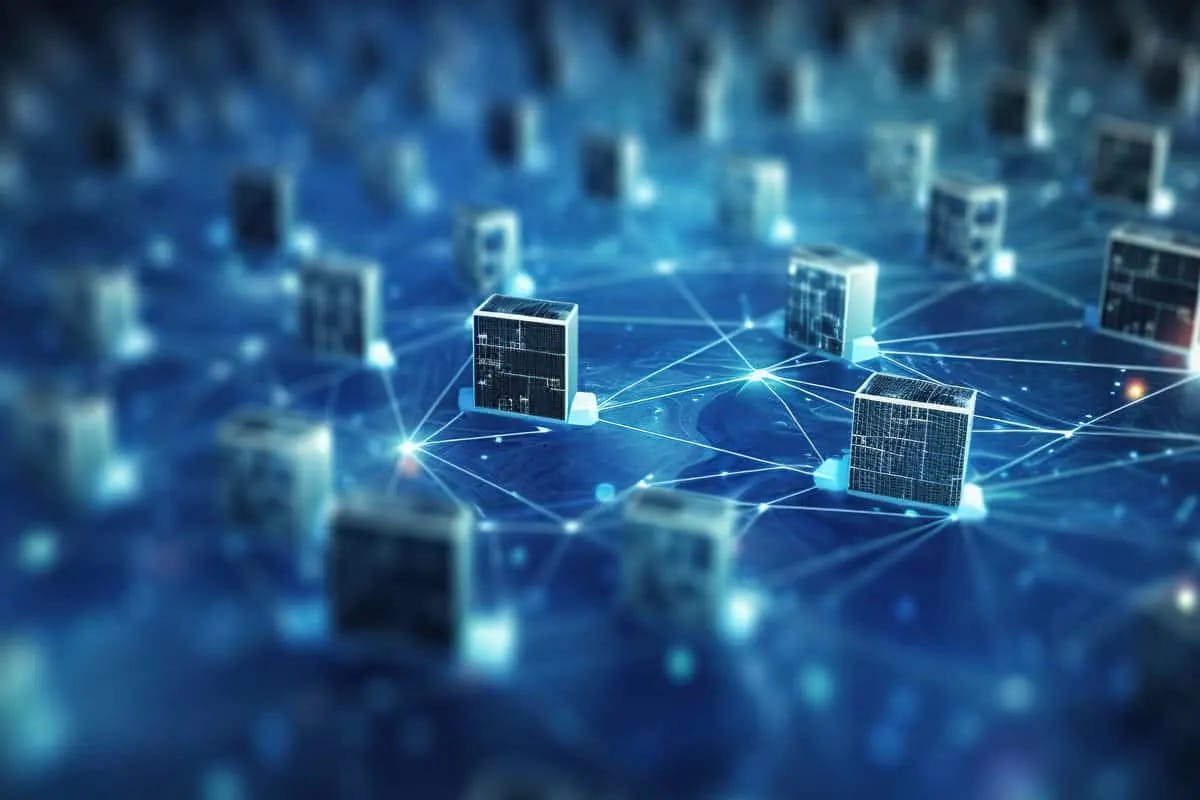


The introduction of Model Context Protocol tools has caused a profound transition in the space of AI, transforming the way AI models communicate with corporate systems, data sources, and external tools. With more than 1,000 open-source connections and broad adoption across key cloud platforms, MCP automation tools have transformed from an experimental standard to the foundation of enterprise AI automation as we move through 2026.
Anthropic's open standard Model Context Protocol (MCP) simplifies AI model interaction with external tools, data sources, and services. Its unified interface lets AI agents securely and efficiently access and integrate multiple data sources without custom integrations. A standardized protocol addresses AI-powered workflow scalability issues.
LLMs can maintain context across multiple systems because MCP has a client-server architecture and provides context in real time for every server request. AI models can now connect to Google Drive, databases, APIs, and others using a single protocol.
One great way MCP can be used in test automation is to let large language models (LLMs) communicate with web applications using structured accessibility snapshots instead of visual pixels or computer vision.
This method allows AI models to retrieve semantic context—roles, labels, and states—from the DOM, mimicking assistive technologies. MCP improves the explainability and dependability of AI-driven web element interactions, which may improve automated test quality and maintainability.
MCP simplifies connecting AI assistants to testers' databases, APIs, content repositories, and development environments. With MCP integration, you can access data in a standard way without having to write logic for each new source. Here we have bifurcated them into two in this Model Context Protocol guide, one for enterprises and the other for developers.
Web3, and enterprise teams deploy AI agents using MCP,
For AI workflows, HashiCorp's Terraform MCP Server is the ultimate in infrastructure-as-code automation. This enterprise-grade solution performs exceptionally well in settings where governance, security, and scalability are non-negotiable.
Ideal For: Companies in regulated industries that need auditable automation, large enterprises with intricate cloud infrastructures, and situations requiring the highest level of compliance and scalability.
DBT-MCP is the preferred option for data-driven organizations looking to use AI for business intelligence since it fills the gap between contemporary data warehouses and AI-powered analytics.
Ideal For: Data teams, analytics divisions, companies that need real-time reporting driven by AI, and enterprises incorporating AI assistants into pre-existing data pipelines.
With deep integration with services like Amazon Bedrock Knowledge Bases and enterprise-grade scalability for mission-critical AI applications, AWS MCP makes the most of Amazon's cloud ecosystem.
Ideal For: Teams needing reliable, secure cloud-based automation, enterprises developing scalable AI-powered apps, and organizations with existing AWS infrastructure.
Google Cloud's MCP implementation is perfect for businesses that operate in multi-cloud environments because it prioritizes cross-cloud compatibility while preserving robust security and compliance features.
Ideal For: Teams developing cross-cloud AI applications, businesses dedicated to Google Cloud platforms, and enterprises in need of scalable, secure automation across cloud providers.
As the creator of the MCP standard, Anthropic's implementation continues to be the most adaptable and extensively used solution, acting as the industry standard for next-generation AI automation.
Ideal For: AI-first companies, research facilities, developers creating personalized AI assistants, and businesses needing the most flexibility possible about AI and data tools.
Ready to integrate MCP into your automation stack?
Playwright MCP from Microsoft has completely changed web automation by substituting structured accessibility tree data for pixel-based interactions. This has significantly increased the explainability and dependability of AI-driven web interactions.
Use Cases: General-purpose browser interaction for AI agents, data extraction from structured content, automation of web navigation, and LLM-driven testing.
By supporting both Chrome and Firefox browsers with standardized MCP clients, Angie Jones' Selenium MCP Server effectively connects the dots between contemporary AI integrations and traditional Selenium WebDriver automation.
Use Cases: AI-powered test case creation, cross-browser compatibility testing, automated web testing workflows, and the beginning and ending of browser sessions.
This tool, created by Justas Monkevičius, shows how MCP improves AI-assisted accessibility analysis for improved web inclusion by fusing Playwright automation with Axe-core accessibility testing.
Use Cases: Thorough accessibility audits, automated compliance reporting, the detection of visual accessibility problems, and accessibility enhancements guided by AI.
With an emphasis on JavaScript and TypeScript applications, specifically the Jest and Cypress frameworks, StudentOfJS's specialised tool improves frontend testing processes.
Use Cases: React component testing workflows, automated test case creation, test execution and reporting, and frontend code analysis and optimisation.
AI agents can carry out complex security assessments and reverse engineering tasks using automated workflows thanks to this carefully selected collection of MCP server configurations that are optimised for Kali Linux.
Use Cases: Automated security evaluations, flexible network analysis, reverse engineering and binary comprehension, and automated penetration testing.
The MCP ecosystem has experienced notable advancements and reached remarkable maturity as of 2026.
Major Integrations:
Commercial Solutions:
As of April 2025, despite MCP's enormous automation potential, security researchers have found many serious security flaws:
To reduce these risks, organisations using MCP should give security auditing, permission management, and frequent security assessments top priority.
Your choice of the MCP automation tool should align with your specific needs:
Model Context Protocol tools are the cornerstone of the upcoming generation of AI-powered workflows, not just another automation standard. The MCP automation tools ecosystem in 2026 provides reliable, scalable, and secure solutions for all automation challenges, whether you're a developer creating the next generation of intelligent assistants, an enterprise architect organising extensive AI integration, or a data engineer gaining insights through AI analytics.
A maturing landscape across the entire technology stack is reflected in the convergence of developer tools like Playwright MCP and Selenium MCP with enterprise-grade platforms like HashiCorp Terraform MCP and AWS MCP.
AI automation is already taking shape, and it speaks MCP. If you are a business seeking to benefit from the best MCP tools, you can rely on the Codiste team because we have mastered this automation process. Whether you are at the developer stage or the enterprise level, we can help. For more information, get in touch with us at Codiste .



Every great partnership begins with a conversation. Whether you’re exploring possibilities or ready to scale, our team of specialists will help you navigate the journey.